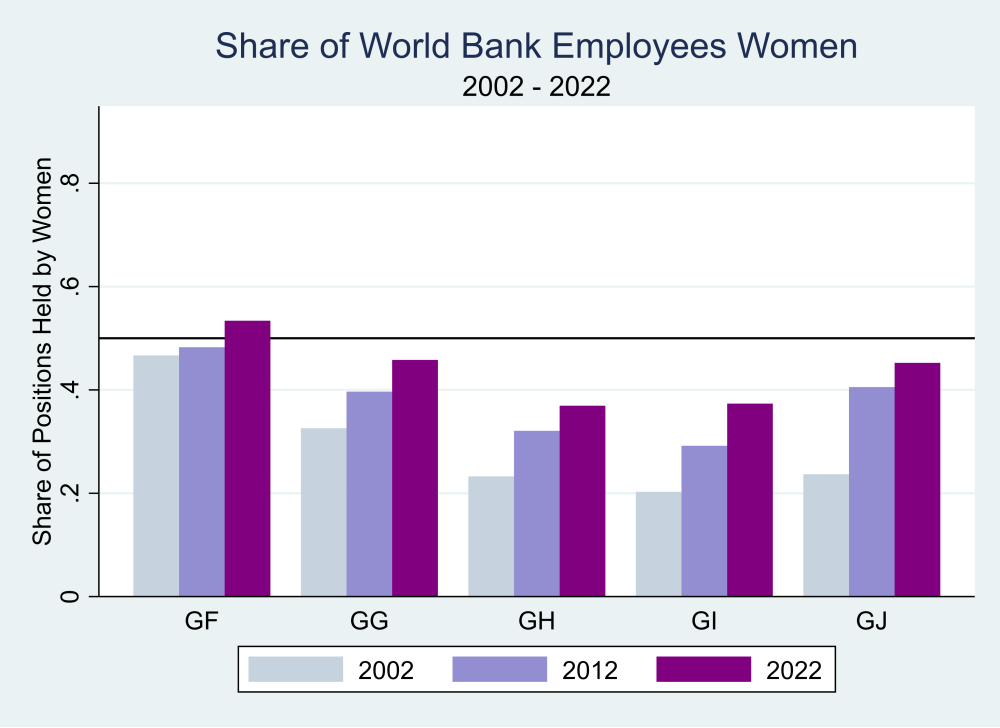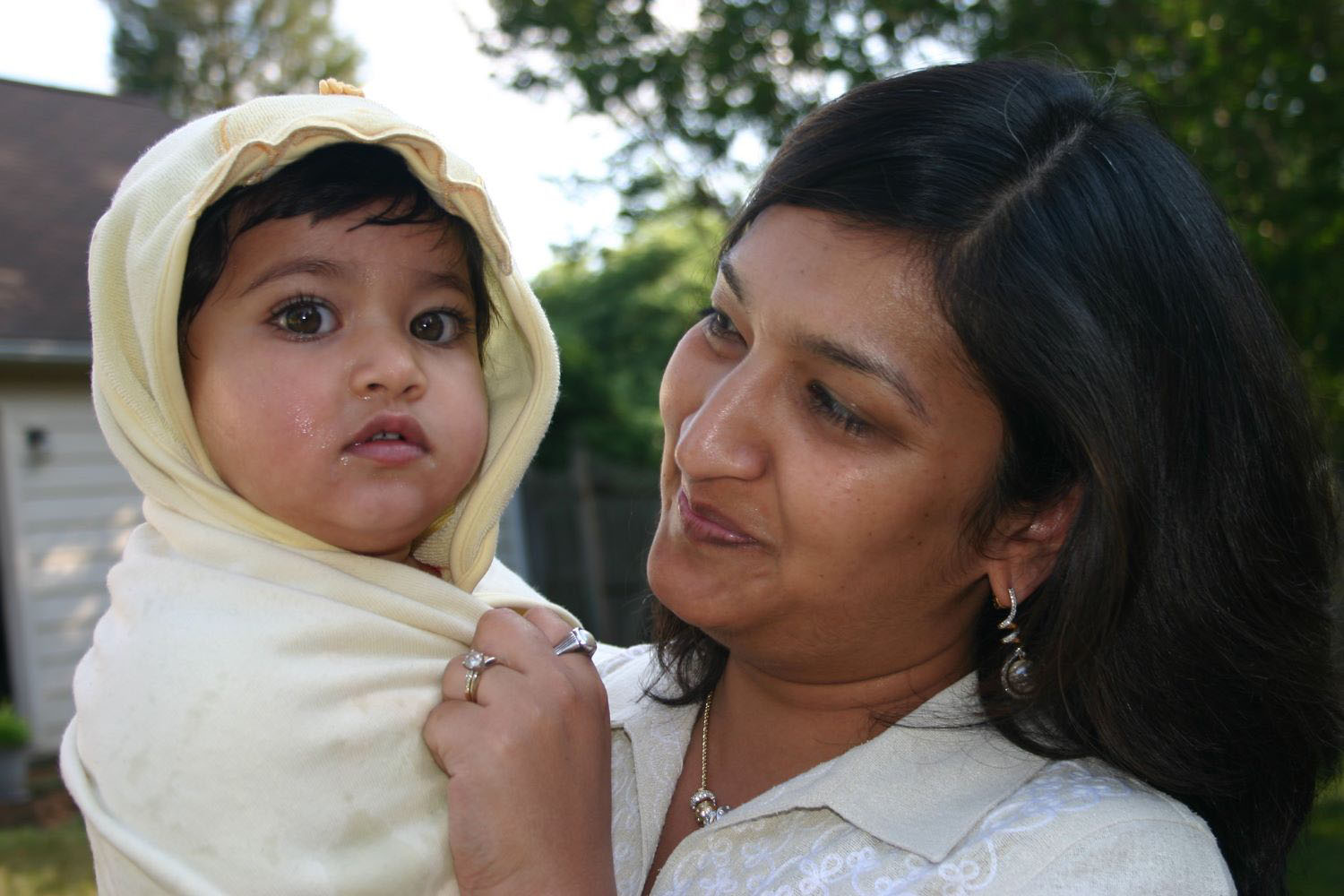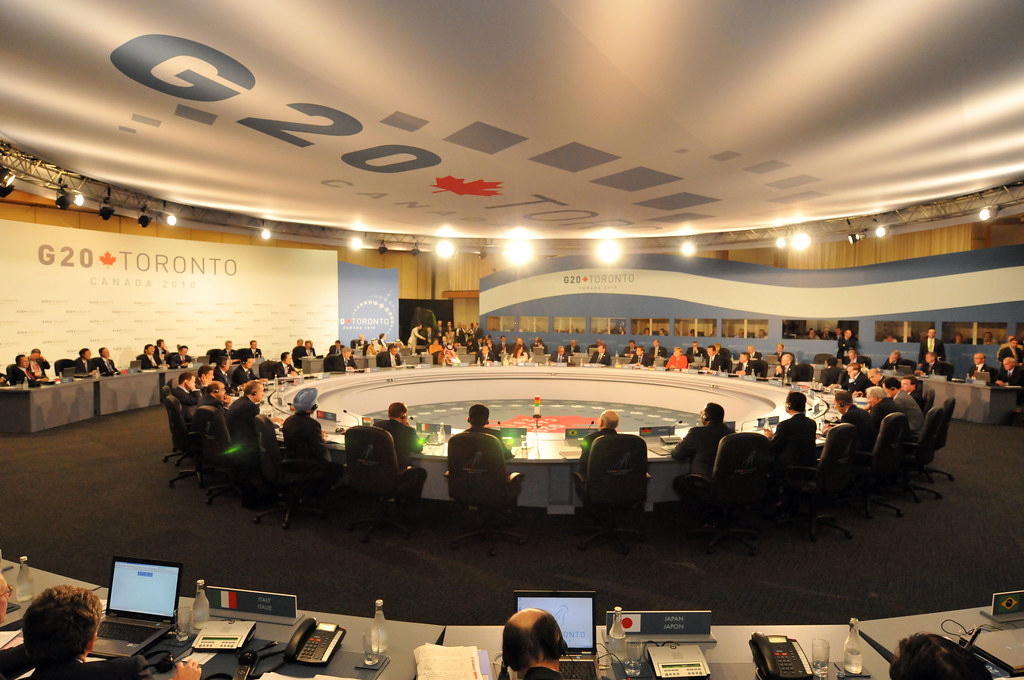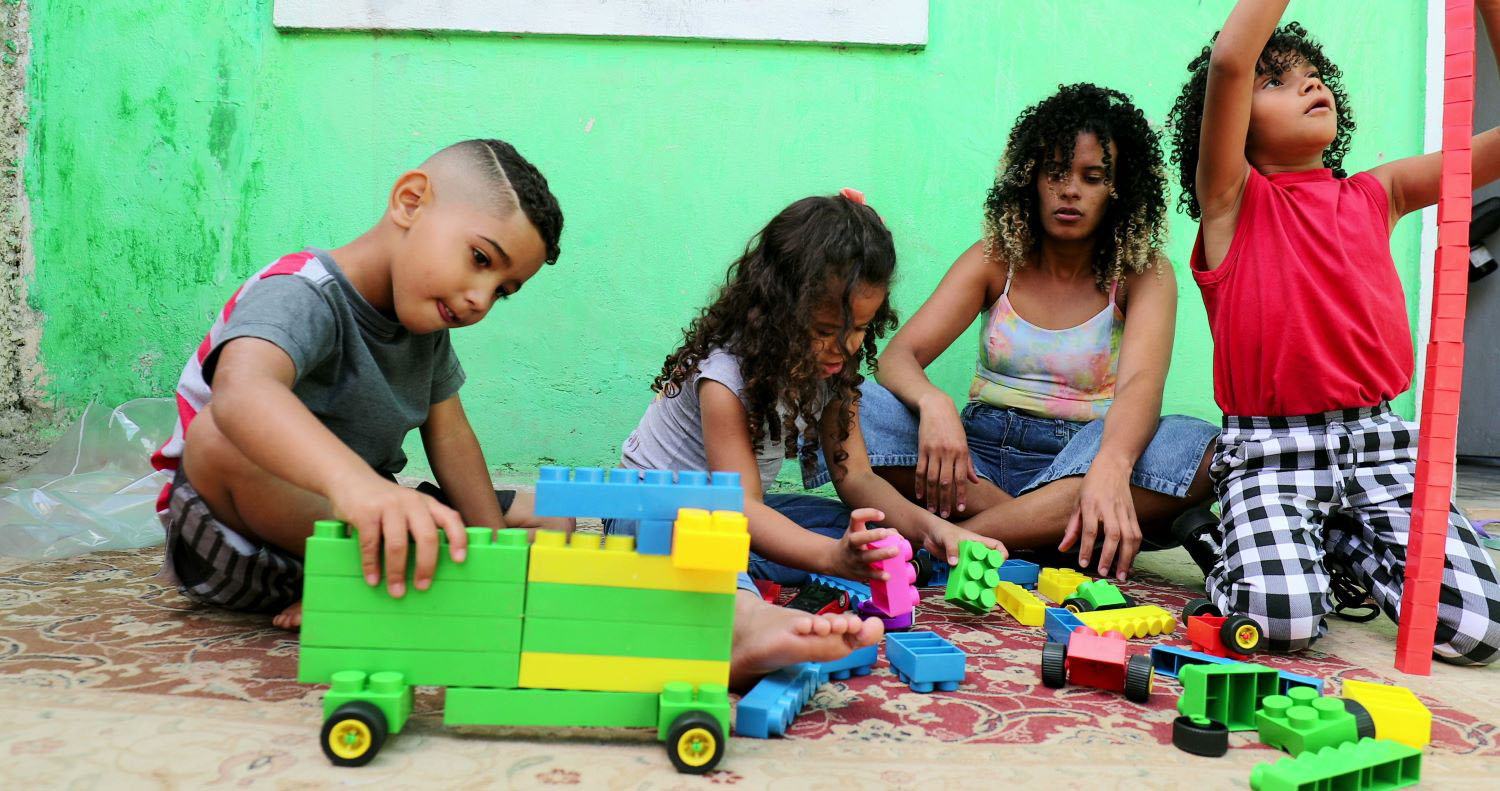Recommended
Today, we are launching a blog series, "Beyond the Status Quo: Gender Equity within the IFIs," to be published over the next six months, featuring analysis and commentary on the various dimensions of gender equity within international financial institutions (IFIs) from both CGD and external experts.
IFIs increasingly recognize the primacy of gender equality in economic development, and they also appear to recognize that diversity and inclusion improve the quality, relevance, and credibility of the policy advice they offer. Diversity, Equity, and Inclusion (DEI) offices and diversity statements are now the norm rather than the exception at IFIs. Yet, as CGD research has highlighted, an inward look at diversity and representation within the IFIs’ own bureaucracies is sometimes missing, at least from the public discourse. Taking a broad look at seven major IFIs over a 20-year period, we find some reason for optimism: there has been significant movement toward gender parity in all IFIs over this time period.
But the gains are fragile—easily overturned and prone to prolonged periods of stagnation. Only three of nine IFIs have ever had a woman head and no woman of color has ever been the head of an IFI. And the problems start early. As the graph below, reproduced from a CGD working paper, shows, at the World Bank, women make up a smaller share of each successive technical and managerial grade compared to the grade below—starting with the very first promotion—until we get to the very top, where there is only a very small number of positions.
Declining odds of promotion out of technical grades into management for cohorts of women in the World Bank

So, despite decades of rigorous evidence on the returns to diversity, equity, and inclusion for high-quality policymaking, why is there still so much room for improvement on gender equity in IFI workforces? Here at CGD, we have been piecing together various parts of this conversation.
The external experts we will feature include widely respected academic researchers who have conducted in-depth analysis on various dimensions, from the returns to diversity to the effect of diversity on the quality of development policy to the gender pay gap at the IFIs , and even perceptions of the reliability of advice when it comes from men versus women. And true to our intention of centering the lived experiences at the heart of this conversation, we will also feature commentary from current and former IFI staff. Through this dialogue, we hope to empower the champions in each institution to start the process of the deep-seated cultural change that will lead to a resilient push for DEI.
This builds upon the powerful personal stories we have heard in conversations at CGD about the substantial burden that gendered norms and caregiving roles placed on the women’s career trajectories. We learned about the diverse set of coping strategies used by women to continue to succeed in the workplace. Strikingly, the women telling us these stories have included senior leaders at IFIs—the success stories. Even they have had to face unequal treatment and have deployed a wide range of strategies to overcome them.
We’ve also heard from IFI leadership, with both the World Bank President Ajay Banga and IMF Managing Director Kristalina Georgieva touching upon the importance of building a strong pipeline of women within each institution’s technical cadres. In follow-up communication from the Bank president’s office, we believe that progress is being made in moving towards their stated DEI goals, including through routinely tracking and publishing gender disaggregated data on career trajectories. Such progress is imperative for greater transparency and accountability. In that context, we welcome the news that the World Bank’s DEI report this year will present, for the first time, gender disaggregated staff trajectories across the entire World Bank group. And we’ve seen the impact of our research on the IDB board’s commitment toward greater gender parity.
We know that diversity improves the quality of policymaking, so who is being promoted and who is not is ultimately relevant for aid effectiveness. But we also know that the skeptics and holdouts remain—those who don’t understand why diversity is important or what it “brings to the table”. (Of course, the status quo is never asked to justify itself.)
We hope this series will catalyze a deeper look at these issues within the IFIs themselves and contribute to a broader conversation about the value of women in leadership in general.
--
Full list of blogs in the"Beyond the Status Quo: Gender Equity within the IFIs" series (updated as new pieces publish):
- What Explains the Differences in Compensation for Men and Women at the World Bank? by Jishnu Das and Clement Joubert
- A Shout-Out to World Bank and IDB Mothers by Nancy Birdsall
Disclaimer
CGD blog posts reflect the views of the authors, drawing on prior research and experience in their areas of expertise. CGD is a nonpartisan, independent organization and does not take institutional positions.






